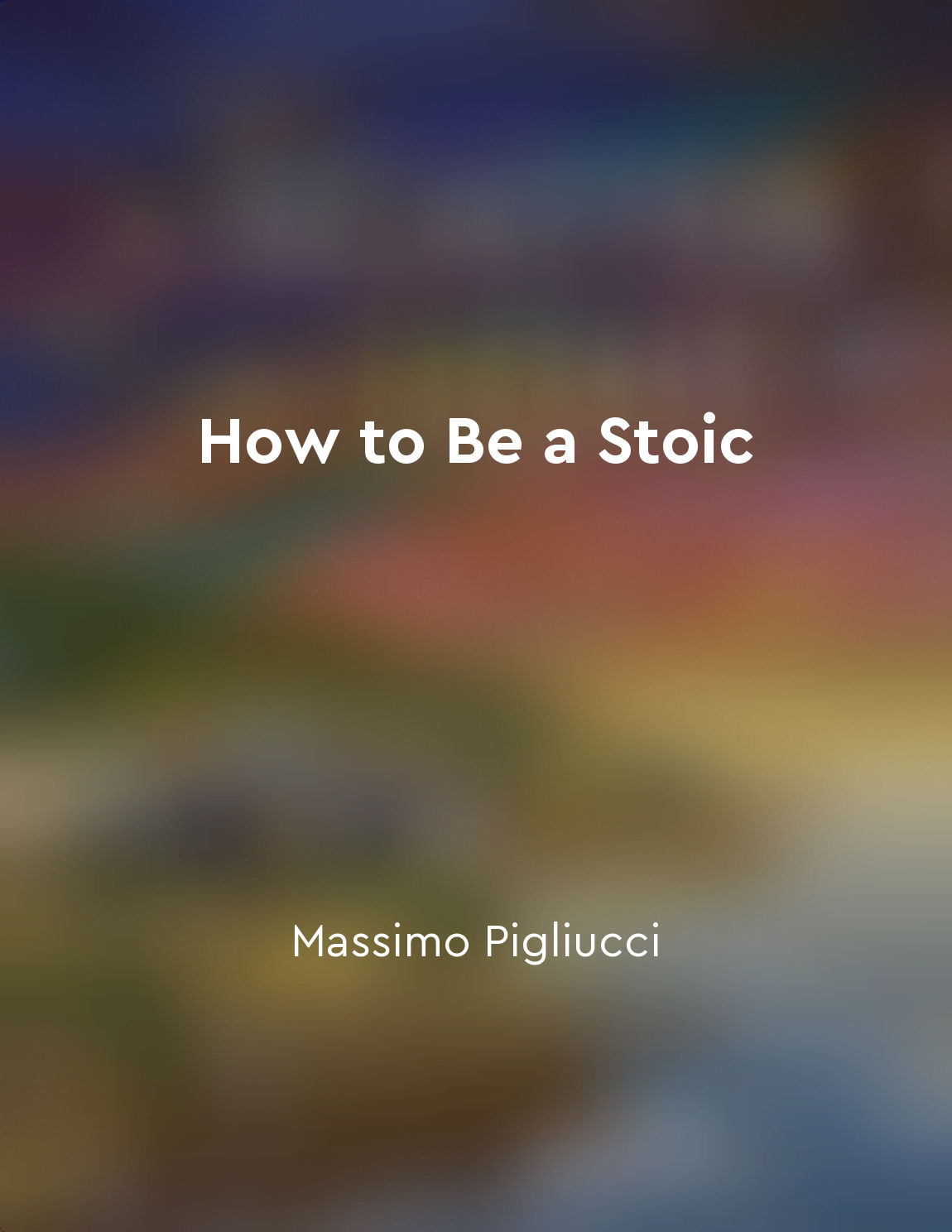Stoics practice detachment from external outcomes from "summary" of The Stoic Life by Tad Brennan
The Stoics were renowned for their emphasis on focusing only on what is within our control, and letting go of attachment to external outcomes. This teaching is central to the Stoic way of life, as it encourages individuals to cultivate a sense of inner peace and resilience in the face of life's uncertainties. By detaching themselves from external outcomes, Stoics sought to free themselves from the tyranny of external events and circumstances. Instead of fixating on things beyond their control, such as wealth, status, or the opinions of others, Stoics directed their attention inward, towards the development of virtue and the cultivation of a tranquil mind. This practice of detachment allowed Stoics to maintain a sense of equanimity in the face of adversity. Whether they encountered success or failure, praise or criticism, pleasure or pain, Stoics remained steadfast in their commitment to living a life guided by reason and virtue. In essence, the Stoic practice of detachment served as a powerful tool for navigating the ups and downs of life with grace and wisdom. By relinquishing their attachment to external outcomes, Stoics were able to cultivate a sense of inner freedom and resilience that enabled them to face whatever life threw their way with courage and serenity.- The Stoic teaching of detachment from external outcomes offers a profound lesson in the art of living well. It challenges us to reevaluate our priorities, shift our focus from external circumstances to internal qualities, and cultivate a sense of inner peace that is impervious to the vicissitudes of life.
Similar Posts

Set clear goals and priorities
It is crucial to set clear goals and priorities in life, according to the Stoics. This means having a well-defined sense of wha...
Reason and logic were central to Stoic philosophy
Stoic philosophy was built on the idea that reason and logic were fundamental tools for understanding the world and living a go...

The Stoic mindset emphasizes the importance of living in harmony with one's values
The Stoic philosophy teaches us that in order to lead a fulfilling and virtuous life, we must align our actions with our core v...

Adversity is seen as an opportunity for growth in Stoicism
In Stoicism, adversity is viewed as a chance for personal development and growth. Rather than being seen as something to be avo...

Stoics practice selfdiscipline and self-control
Stoics are known for their commitment to self-discipline and self-control as central virtues in leading a good life. They belie...

Virtue is the highest good in Stoic philosophy
According to the Stoics, the highest good in life is virtue. This concept lies at the heart of their philosophy, guiding their ...

Stoicism teaches individuals to embrace change and impermanence
The philosophy of Stoicism, as expounded by ancient thinkers such as Epictetus and Marcus Aurelius, emphasizes the acceptance o...
Stoicism originated in ancient Greece
The origins of Stoicism can be traced back to ancient Greece, where it emerged as a philosophical school of thought in the earl...
Let go of attachment to outcomes
The Stoics believed that one of the key principles to achieving inner peace and tranquility is to release our attachment to out...
They teach us to accept our fate with dignity and grace
The Stoics believe that one of the core principles of their philosophy is the idea of accepting our fate with dignity and grace...

